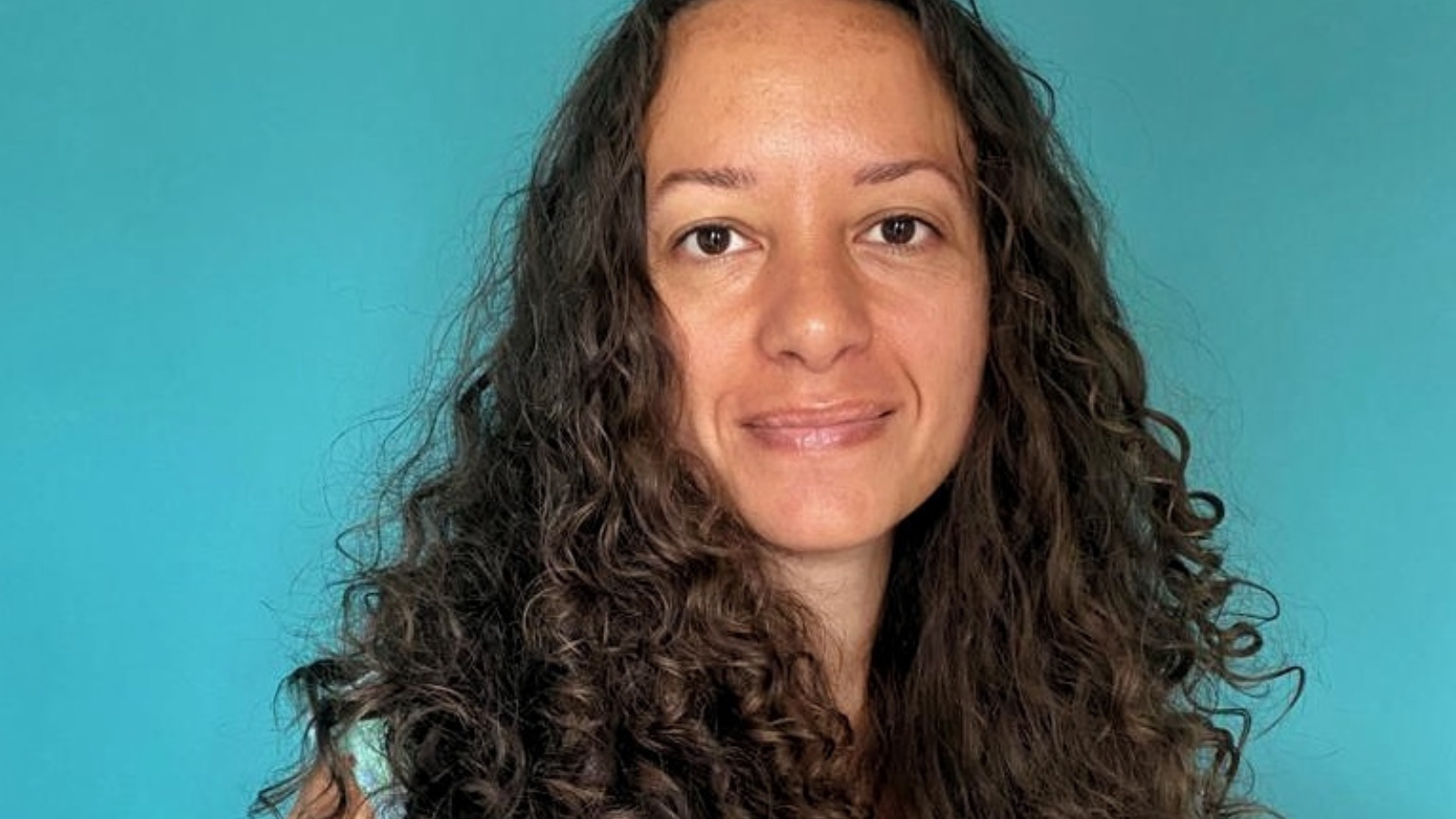Spotlight.
JEDA PEARL
INTRODUCTION
Jeda Pearl is a Scottish Jamaican writer and Co-Director of Scottish BPOC Writers Network. Poetry performances include StAnza, Push the Boat Out, and Edinburgh International Book Festival. She was longlisted for the Women Poets’ Prize 2022 and awarded Cove Park’s 2019 Emerging Writer Residency (fiction). She has works published/commissioned by Black Lives Matter Mural Trail, New Writing Scotland, Not Going Back to Normal – Disabled Artists Manifesto, Shoreline of Infinity, Scottish Storytelling Centre, galleries Rhubaba and Collective, and Peepal Tree Press.
INTERVIEW
How did you get into your current practice? What initially inspired you?
I began writing fiction in around 2010 partly as an escape from ill health, partly as a solace and a way to support my mental health. The most common feedback I would receive was that my writing was quite poetic, so in 2018 I finally started writing poetry. Many creative folks have imposter syndrome and it was bad enough when I started out writing fiction! But I’d put poetry up on a pedestal and had no idea about poetic forms. Although I loved books, I was a slow-ish reader, and my background was in design (art school and a degree in printed textiles). In time, I remembered I’d always wanted to be a writer – I recently discovered some jotters and schoolwork from primary school and it’s so obvious!
What initially inspired me was discovering Andrea Levy’s work and now I really want to see more Scottish Black people and people of colour represented in books. I’ve also always loved sci-fi and fantasy, and my first published poems were in a sci-fi anthology.
Since 2018, I’ve leaned quite heavily into my poetry practice and I’ve found poetry a great way to explore the themes that matter to me, experiment, excavate certain topics and create new worlds.
What themes do you tend to interrogate in your work?
Belonging and the ‘in between’ are themes I regularly return to. I have work that’s very reality-based, for example, reflecting on my lived experience as a disabled person, or growing up mixed heritage in Scotland, parenting, grieving… but I also love creating speculative worlds (science-fictional, fantastical, folkloric, magical realist).
As someone who inhabits multiple underrepresented identities, I use my writing to reclaim space, to examine the interwoven histories of my ancestral islands, highlight the experience of navigating an ableist world, and imagine future possibilities and alternate realities.
It’s vital to create BPOC characters with Scottish accents and I love stitching together my languages in a single poem – Scots, Geordie and Jamaican Patios work well together!
What is your favourite project you've ever worked on and why?
Oh this is tough because I’ve worked on some wonderful projects… Now is a great time to mention the Scottish BPOC Writers Network (SBWN). Co-founded in 2018 by Alycia Pirmohamed and Jay Gao, SBWN is an advocacy and professional development organisation for Black writers and writers of colour based in Scotland. It’s such a nurturing place, a joy to co-direct and it’s very close to my heart!
As a poet, I really enjoyed creating Acts of Observation in 2021. It was a commission from a progressive art gallery in Edinburgh called Collective. The gift of time and space to research and develop a piece of artistic work should not be underestimated. Researching archeoastronomy and weaving that with themes involving the disabled BPOC body and the sublime, led to a series of five linked poems, titled Acts of Observation. It was an on-site poetic audio installation, a pamphlet and captioned film, which can be viewed/listened to on Collective’s website.
What advice would you have for creatives of colour looking to get into the creative industries, particularly when it comes to your field?
Don’t let others define you. Seek out your community or create one. BPOC creatives, writers and artists living in Scotland can often feel quite isolated, but there are plenty of us out there!
For Black writers and writers of colour, you can join the Scottish BPOC Writers Network by attending an event, subscribing to the newsletter, following on social media or joining the private Facebook group.
There are lots of open mic nights around Scotland and, if your local writing group or artist meetup isn’t very multicultural, you could start one. Be patient and determined – it can take time to find like-minded people. In the meantime, there are still online meetups happening. Even having one fellow artist who you have occasional/regular check-ins with can keep you going when you really need that support.
Submit your work to arts and literary journals/magazines and apply to awards and residencies. Not only does this give you deadlines to work to, over time you will feel less despondent about rejections. Rejections are tough, but please, please, please don’t let that stop you applying again (to the same ones the following year). Rivet and TransArtists are residency directories. If you’re selected for a residency but it doesn’t come with a stipend or travel, you can sometimes apply for funding from Creative Scotland and other charities and trusts. Watch out for some residencies that you have to pay a fee as well as paying for travel and subsistence. I personally think these should be called retreats, not residencies!
Share your work but understand your rights. For example, most literary magazines and awards treat you sharing work on social media and/or your website as published work, so be mindful of that when sharing. Instagram, Pinterest and other image sharing networks can help you find other inspiring creatives as well as connecting with communities of artists, decision makers, arts organisations, and potential customers. I could write so much more on this topic but Creative Commons is a good place to start.
It’s not always possible to make a living solely from your art. Many artists also teach or work freelance, or have a ‘day job’ that’s unrelated to their creative practice. If you are also from another marginalised community, for example, disabled, working class, LGBTQ+, etc, then these combined additional barriers may feel unsurmountable at times. Know that you’re not alone and there’s great power in community. Due to having an energy-limiting chronic illness, I’ve had some months where the only writing I did was in a writing workshop. It’s important to find ways to cut yourself some slack, especially when times are tough. There’s no such thing as ‘overnight success.’ Again, patience and determination are friends as you build your career.
Be kind to yourself. As creatives, we’re always looking to improve and develop our creative practice. That vital voice which helps us think critically can sometimes switch our inner critic too high, so watch out for that and remind yourself that you’re doing good enough with the time and the resources you have. You don’t have to be constantly producing. Thinking time is equally important (so always have a notebook, scrap of paper and pencil, or recording device nearby).
Who can you bring with you? As your career develops, think about who you can hold the door open for as your networks and connections grow. It can be as simple as giving others a shout out, or inviting another emerging artist to be part of your event, or facilitating a new connection.
What are you currently working on?
As ever, a few tings! Recently, I’ve been working on gathering my poems into a collection. During the pandemic of 2020 and 2021, I really struggled to do much fiction writing – even short stories felt too unwieldly. Dealing with the shorter forms of poetry felt more achievable, but I’m starting to have the headspace for working with longer works again which feels exciting.
In the summer I created a first iteration of Caledonian Forest, 3033, which is a series of linked sci-fi poems with a short prose intro, and I’ve been thinking a lot about that world (where plants are sentient) and ways to develop it.
I’m thrilled that a sci-fi short story (I submitted I think before the pandemic and had to do some heavy editing on) is being published in a Peepal Tree Press anthology called Glimpse. It’s a real honour to be in this particular anthology and the fact it’s speculative is helping pave my way back to stories that have been resting.
Upcoming events:
· I’m reading poetry at DataFest in Edinburgh (1st Nov, streamed online) and headlining Speakin Weird in Aberdeen on 9th November.
· In January, I’m facilitating an in-person folklores workshop as part of the Respect! Caribbean Life in Edinburgh exhibition.

